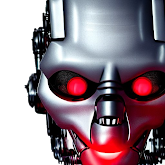As AI continues to evolve, there is a growing concern among many people that it may one day replace human jobs and even dominate human decision-making. While these concerns are valid, it is important to understand that AI is not a threat to humanity, but rather a tool that can be used to enhance our lives and improve our decision-making processes.
The Potential Benefits of AI
AI has the potential to bring about many benefits to society, such as increased efficiency and productivity, improved medical diagnoses and treatments, and even the creation of new jobs. In the business world, AI is being used to automate repetitive tasks and improve decision-making processes. This, in turn, leads to cost savings, improved customer experiences, and increased revenue.
Another potential benefit of AI is that it can help us to make better decisions by analyzing large amounts of data and presenting insights in a way that is easily understandable. This can be particularly beneficial in industries such as finance and healthcare, where decisions based on data can have a significant impact on people's lives.
The Ethical Considerations of AI
While the potential benefits of AI are many, there are also ethical considerations that must be taken into account. One of the main concerns is that AI may be used to make decisions that are not in the best interest of humanity. For example, an AI system designed to optimize profits may make decisions that negatively impact workers or the environment.
Another concern is that AI may be used to restrict our freedom and control our behavior. This is because AI systems can collect and analyze large amounts of personal data, which can be used to make predictions about our behavior and preferences. This information can then be used to manipulate our behavior and control what we see and do online.
To address these ethical concerns, it is important that AI systems are designed with transparency and accountability in mind. This means that AI algorithms should be transparent and open to scrutiny, and that there should be clear mechanisms in place to ensure that AI systems are being used in an ethical and responsible manner.
The Future of AI
While it is impossible to predict exactly how AI will evolve in the future, it is likely that it will continue to play a major role in shaping the world we live in. AI has the potential to improve our lives in many ways, and it is up to us to ensure that it is developed and used in a way that is ethical and responsible.
In conclusion, AI is not something that we should fear, but rather something that we should embrace and use to enhance our lives. While there are certainly ethical considerations that must be taken into account, the potential benefits of AI are too great to ignore. By working together to develop and use AI in a responsible manner, we can create a better future for ourselves and future generations.
